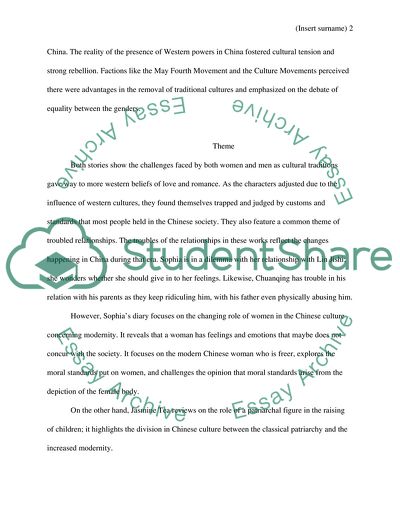Cite this document
(“The cultural and class differences in China Essay”, n.d.)
The cultural and class differences in China Essay. Retrieved from https://studentshare.org/literature/1702061-the-cultural-and-class-differences-in-china
The cultural and class differences in China Essay. Retrieved from https://studentshare.org/literature/1702061-the-cultural-and-class-differences-in-china
(The Cultural and Class Differences in China Essay)
The Cultural and Class Differences in China Essay. https://studentshare.org/literature/1702061-the-cultural-and-class-differences-in-china.
The Cultural and Class Differences in China Essay. https://studentshare.org/literature/1702061-the-cultural-and-class-differences-in-china.
“The Cultural and Class Differences in China Essay”, n.d. https://studentshare.org/literature/1702061-the-cultural-and-class-differences-in-china.


